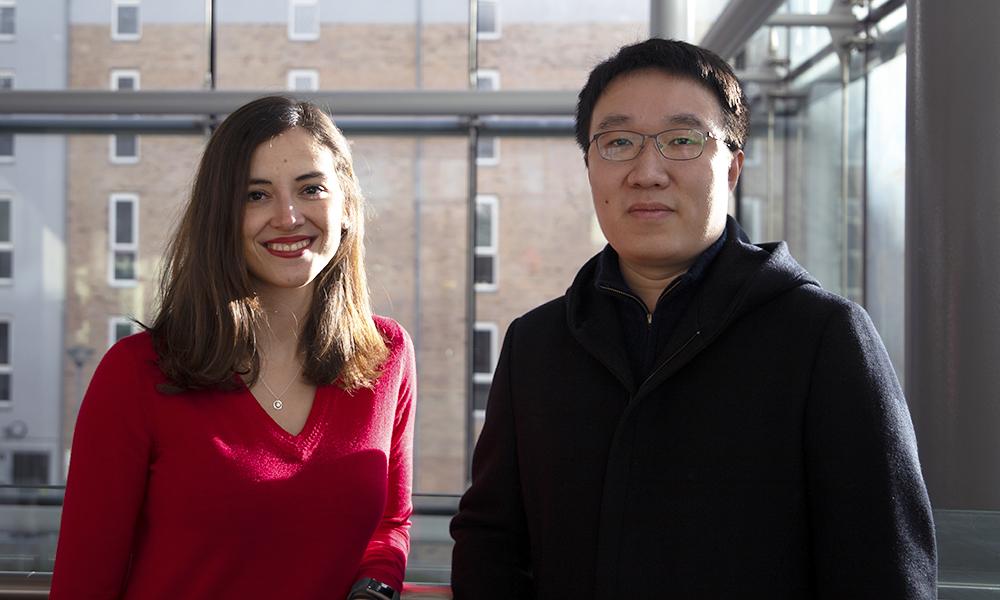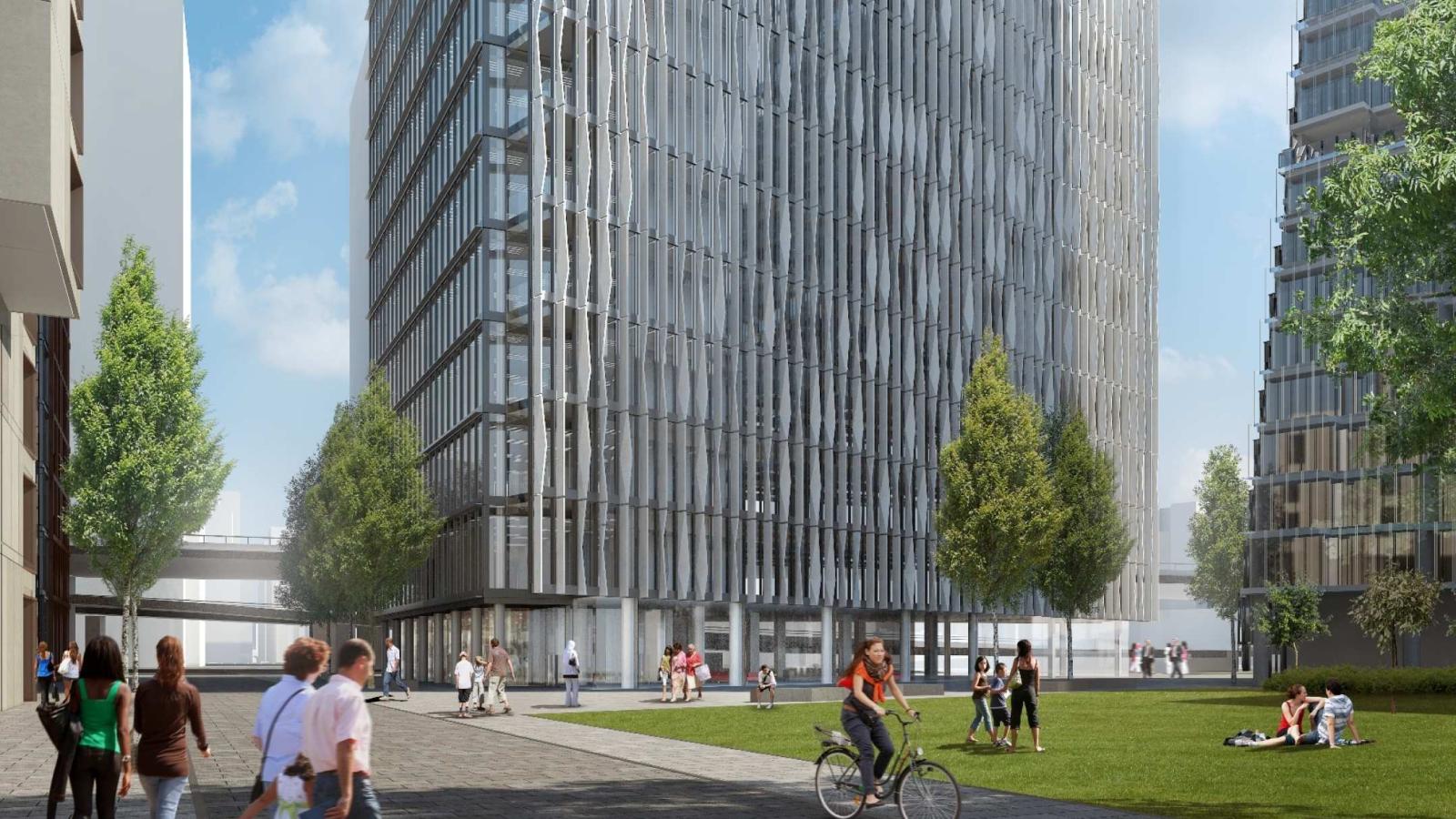Two new talented Fellows have been recruited to our UK DRI centres based at Imperial College London, following a generous donation of £1.63 million from Lily Safra and the Edmond J. Safra Foundation. Dr Sarah Marzi and Dr Bing Li, will work closely with Prof Paul Matthews, UK DRI at Imperial, and Prof David Sharp, UK DRI Care Research & Technology respectively. Geneviève Timmins, Digital Communications Manager at Imperial College London, sat down with the pair to find out more about their research into Parkinson's disease.
The following article is republished from Imperial College London (4 February 2020).

with Dr Sarah Marzi and Dr Bing Li
(Edmond and Lily Safra Fellows at UK DRI at Imperial and UK DRI Care Research & Technology respectively)
Can you tell us a bit about your career before joining Imperial?
BL: I received my BEng in Bioengineering from Nanjing University of Science and Technology and PhD in Materials Engineering and Biosensing Technology from the University of Plymouth in 2016. I then spent a year on understanding the electron transport behaviour through graphene junctions in the Department of Physics at Imperial, followed by two years at the Hamlyn Centre developing medical and assistive sensors for surgery tools and robotics.
SM: I graduated in Mathematics and Psychology from the University of Freiburg before moving to London for my PhD in 2014, where I have been based ever since. My PhD at King’s College London focussed on epigenetic regulation in brain and behavioural phenotypes, using both computational and wet lab approaches. I then spent two years as a postdoc at Queen Mary University of London, looking at epigenetic mechanisms of gene-environment interactions following nutritional stress in mouse and human, before joining the UK DRI at Imperial.
Can you explain what the focus of your research programme will be, and the major research themes you’ll be exploring as part of your Fellowship?
BL: I plan to extend my knowledge in the development of nanomaterials-based biosensors and apply the advances in current electrochemical biosensing techniques to develop non-invasive, reliable and cost-effective biosensors as a front-line Point-of-Care application for the detection of neurodegenerative biomarkers. The main objectives of my research are:
- to develop biosensing platform using nanomaterials and nanostructures for the detection of blood Parkinson’s biomarkers.
- to undertake clinical validation of the biosensing techniques.
- to integrate the biosensors with readout/analysis systems for clinical use.
SM: My key research area is epigenetic regulation in neurodegenerative disease, focussing specifically on Parkinson’s disease. I study epigenetic and gene regulatory mechanisms in the human brain to understand the cell type- and brain region-specific consequences of genetic and environmental risk factors, to ultimately understand the molecular causes of disease. Specifically, I want to answer the following questions:
- How is the human brain differently regulated in Parkinson’s disease?
- What are gradual and stage-specific changes to gene regulation across neuropathological stages?
- What are the epigenomic consequences of non-coding variants?
- What is happening to gene regulation in specific disease-affected cell types?
How do you think this work will impact wider research into Parkinson’s disease?
BL: The impact of this work lies in enabling the clinical diagnosis of early-stage Parkinson’s disease using a real-time, label-free, portable and cost-effective biosensor and promote the development of disease-modifying treatment.
SM: This research will give us much better insights into the aetiology of Parkinson’s disease, at a fine-grained molecular-regulatory level. Ultimately, understanding the molecular drivers of the disease and in which cell types and brain regions they function will lead to improved prediction of affected molecular pathways, enabling the targeted development of therapeutic interventions.
How will this Fellowship support your career development?
BL: I would like to thank Lily Safra and the Edmond J. Safra Foundation for providing the very generous support. This will allow me to pursue my research interest, and build up my profile within both academia and the clinical field over the next four years. This opportunity could not only provide a platform for me to continue my research in biosensing technology for Parkinson’s disease detection, but also provide unique collaboration opportunities with the top research teams in the field to bring my knowledge into clinical and commercial reality to benefit the society.
SM: I am extremely excited to have started my Fellowship at the UK DRI at Imperial College London. I am very grateful for the generous support of Lily Safra and the Edmond J. Safra Foundation and could not think of a better environment in which to develop my independent research career. I am surrounded by fantastic scientists and research groups working at the forefront of neurodegenerative disease research, and I am looking forward to developing joint initiatives aimed at unravelling the regulatory origins of Parkinson’s disease and other dementias.
Article published: 5 February 2020
